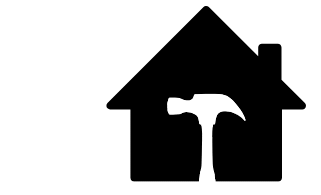The cost of replacing your bathroom isn’t set in stone and will vary drastically depending on what you opt for. The average bathroom will cost you around £3,000 when you include everything from the bath, sink, toilet, plumbing, and lighting.
Of course, you could spend well in excess of this by completely remodelling the bathroom and extending the space. Bathroom cost could even be as little as a few hundred pounds if you choose simply to replace units with cheaper alternatives. Your budget will entirely decide the bathroom you choose. Remember, you won’t necessarily need to invest in new taps and pipe work, so take it on a personal basis and only purchase what you need.
As an example of the various prices you could pay, have a look at our shower cost guide below:
Shower cost
Bath/shower mixer (£50 – £600)
Most freestanding baths will have this installation, with the temperature adjusted by the taps. You won’t need any extra plumbing, making the installation cheaper.
Manual mixer (£60 to £300)
Manual mixers tend to be the most popular shower installation, with the hose coming from a wall unit that combines the hot and cold water supply.
Electric shower (£50 to £200)
Electric showers use the mains cold water with a gauge to regulate temperature and pressure. Electric showers are better for en-suites and second bathrooms where hot water is separate from the boiler.
Power shower (£200 to £700)
Power showers tend to be the most expensive installations and use an integral electric pump. The pressure and temperature can be easily adjusted to give you the optimum shower experience.
Will DIY cut the bathroom cost?
There’s no doubt about it, taking on the project yourself will help to save money on the full bathroom cost. What’s essential, though, is understanding the complexity of the task at hand before tackling the installation.
With the bathroom, any mistakes can be costly. Wrongly installing a bath or piping can cause leaks, which will damage floorboards and ceilings in the rooms below. On top of that, you’ll be limited to what’s permitted for you to do. You’ll need a qualified electrician if you plan to fit an electric shower.
Another option is to consider buying the goods yourself and then hiring a professional to complete the bathroom fitting. This is perhaps a more sensible way of cutting the cost of your new bathroom. By comparing various quotes, you can quickly assess which is the best option for your circumstances.
When it comes to installing a new bathroom, always look at the guarantees offered. This is even more essential for things such as the grouting and sealants because it can be a costly business if they fail. Ten-year guarantees or longer are what you should be keeping an eye out for to ensure quality.
Conclusion
The cost of a new bathroom can vary hugely depending on the choices you make, from budget-friendly upgrades to full-scale renovations. Whether you’re simply replacing a few fixtures or investing in a complete redesign, planning carefully is the key to avoiding unnecessary expenses. While DIY can save money, it’s important to weigh the risks and call in professionals for complex tasks like electrics or plumbing. By comparing quotes, buying materials smartly, and checking guarantees, you can keep costs under control while still achieving a bathroom that meets your needs and adds value to your home.




